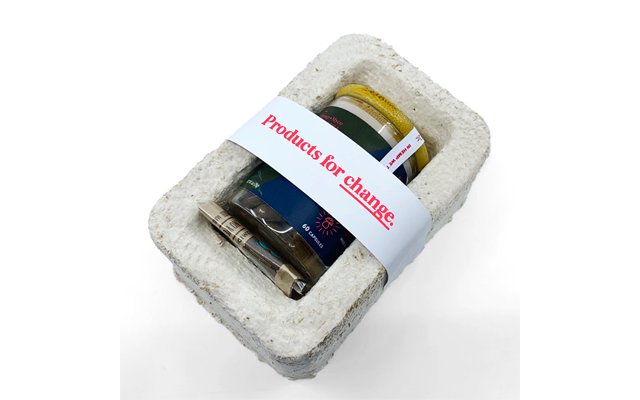Even though sustainability initiatives should be making headlines every day, Earth Day (4/22) is a time for us to step back and re-evaluate how we may be contributing to climate change. Cannabis consumers and patients can only do so much to reduce their footprint. For the most part, it’s up to the brands themselves to identify opportunities for creating a more sustainable cannabis industry. Between regulations around cultivation and child-proof packaging, brands are fairly limited when it comes to being more eco-friendly, but there are a few companies doing what they can for our planet.
Sustainable cultivation methods
A business revolving around growing plants seems like it would be ‘greener’ than ever, but cultivating cannabis is anything but. Cultivators tend to use hundreds of plastic tubs and fiberglass containers to grow these plants and need to use lots of water and electricity in order to keep an operation running.
Lost Coast, a premium cannabis flower label in Colorado is leveraging clean cultivation processes that take advantage of indigenous microorganisms to produce fertile soils with a high output. Replacing pesticides and chemicals with hand-made, all-natural plant inputs, Lost Coast’s method requires the cultivator to get up close and personal with the growing process.
Using living soil within a natural microbiological ecosystem allows Mother Nature to work her magic. By avoiding pesticides completely, putting in the effort required to bring a living ecosystem into your garden, you’re effectively strengthening all phases of plant growth. This means a few different things. Not only does the end result have a better flavor and effect for the consumer, but there’s also a bit less upkeep required for the cultivator in the end, and more relying on nature to run its course.
Lightshade, a vertically integrated dispensary chain also in Colorado reduced its cultivation’s water usage by 1.2 million gallons this year by introducing a water recirculation system. This system recycles and treats captured irrigation water from the plants, increasing water use efficiency and reducing the burden on the municipal water system. Nick Drury and Dan Banks, Lightshade Directors of Cultivation Operations, have made sustainability a mission in Lightshade’s cultivations.
In addition to reducing water usage, Drury and Banks have made other strides to make the greenhouse more sustainable. For example, after experimenting with LED lighting for 5 years, Lightshade is ready to make the switch from HID lighting, reducing power usage, increasing light intensity, and reduce waste. Lightshade’s control systems also leverage artificial intelligence to monitor climate and energy usage.
Germ prevention minus the rubbing alcohol
Next to toilet paper and paper towels, rubbing alcohol was also flying off of the shelves during the pandemic. Rubbing alcohol is often used for killing germs on your glass pipe or bowl after a stranger takes a puff, making it an essential part of any group smoke session with friends.
While rubbing alcohol was out of the picture for everyday use, Moose Labs introduced a solution called the MouthPeace. The MouthPeace is the first physician-backed germ-preventing device made for a safer experience. Constructed from high-quality platinum-cured silicone, the MouthPeace creates a sanitary barrier between users’ mouths and their pipe, joint, or vape, preventing germ spread at the source. Additionally, the MouthPeace helps protect vulnerable lungs. Each MouthPeace comes with replaceable activated carbon Filters which use and triple-layer filtration to remove resins and tar particles from each inhale.
MouthPeaces are essentially face masks for your bong, so it shouldn’t come as a surprise that Moose Labs has seen tremendous interest in its products during the rise of COVID-19. That being said, they’ve ensured some sustainable practices to avoid becoming the center of the next mask floating in the ocean fiasco.
The MouthPeace itself is, of course, reusable, eliminating the need for rubbing alcohol and cotton swabs between users. The replaceable filters are sustainable as well, made from recycled, biodegradable materials. In honor of Earth Day, from April 22nd to May 22nd, Moose Labs is donating 10% of proceeds made on the ‘Earth’ colored MouthPeace to the Earth Island Institute, a non-profit conservation group.
Strides towards eco-friendly packaging
For some brands, sustainability isn’t just about what you do to make a certain product eco-friendly, the packaging plays a major role as well.
Advocates for Cannabis (A.F.C), a full-spectrum hemp product company creating “Products For Change” that are derived from organically cultivated, non-GMO and pesticide-free hemp, grown on Colorado’s Western Slopes. The company prides itself on exceptional quality control from soil to oil, working collaboratively with industry-leading growers, scientists, and extractors to produce cGMP (Current Good Manufacturing Practices) compliant products derived from superior plant genetics.
The woman-owned company recently turned its attention to the ancient benefits of mushrooms, launching A.F.C Hemp + Myco-Immunity Capsules in March that come in high-quality reusable glass jars. The glass “keep jar” is protected by biodegradable mushroom packing material and hemp fiber as opposed to cardboard or plastic.
“Our uniquely tactile unboxing experience brings consumers closer to nature, so they can not only benefit from consuming these superfoods in a familiar capsule format, they can also touch packaging grown from mushrooms, feel the hemp fiber, and then re-use the practical jar to minimize waste. This is all part of the idea of a ‘new’ luxury – a product that makes sustainability sexy,” said Anna Addison, CEO & Co-Founder of A.F.C.
While not every company can successfully make sustainability sexy, some may settle for getting one step closer to being carbon-neutral. At this point, every little step we take matters, as long as it’s a step in the right direction.






